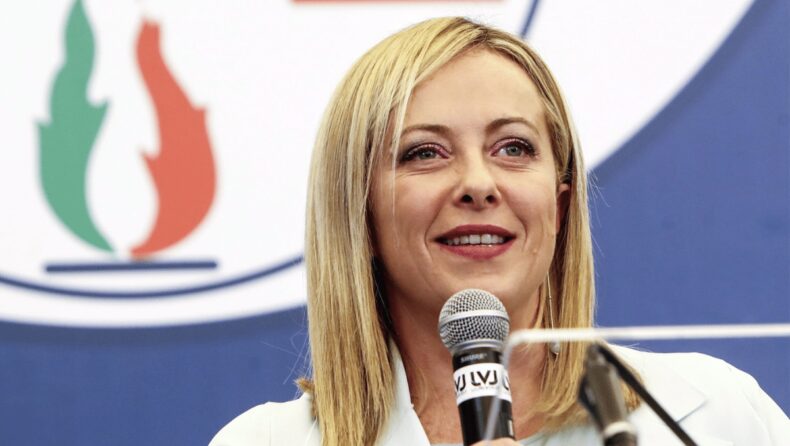Italians are deciding whether to elect the most right-wing government since World War II.
Representation of Italy
Giorgia Meloni heads the far-right Brotherhood of Italy, and she wants to become the country’s first female prime minister to join forces with two other right-wing parties.
She softens her image and refuses to be associated with her Italian fascist past.
Almost 51 million Italians have the right to vote until 23:00 hours on 25th September 2022 (21:00 GMT).
President Sergio Mattarella will begin voting in the Sicilian capital Palermo, while Meloni’s main rival, center-left leader Enrico Letta, will vote in Rome and her far-right ally Matteo Salvini. He voted in Milan.
2.6 million first-time voters and 4.7 million living abroad.

Giorgia Meloni supports Western sanctions against Russia and tones down rhetoric against Europe.
At the tender age of 15, Meloni joined the youth wing of the neo-fascist Italian Social Movement party to take a stand against terror in Italy during that time.
But she stuck to the old fascist slogan, “God, Motherland, Family”, and she spoke out against the “LGBT lobby” and called for a naval blockade of Libya to stop her emigration.
In the city of Latina, one hour south of Rome, observers believe the far right can take the city from the left. Founded in his 1932 by fascist leader Benito Mussolini, Latina still bears the imprint of a dictator but suffered years of lack of funds. “Look, this is a catastrophe,” says a passerby.
The city has had a left-leaning mayor in recent years, but a far-right mayor has his sights set on Latinas. Matteo Salvini arrived here last week to conclude the campaign for the La Liga Party. The center-right Forza Italia, 85, led by former prime minister Silvio Berlusconi, is also part of the coalition.
Italy’s economy recovered after the COVID-19 pandemic, but then an energy crisis, largely caused by Russia’s invasion of Ukraine, sent prices soaring. Politicians have been bickering about Russia and Europe in recent days, but Italians are most concerned about paying their bills.
The EU agreed, and Italy’s 200 billion dollar behemoth Giorgia Meloni called for a review of the plan and said it would do more to “defend” Italy’s national interests in the EU.
No wonder many European leaders are watching this vote closely.
Until early August, Italy’s left-wing and centrist parties wanted to jointly challenge the Meloni League. But they were unable to reach an agreement, and Meloni’s biggest rival in the polls, center-left Democratic Party leader Enrico Letta, now faces an uphill battle.
He shares some guidelines with the Five Star Movement, led by Giuseppe Conte, but they disagree.

Politicians from left to right agree that the Italian school system is in a state of disrepair, but school teachers like Elisa are skeptical that this election will change that.
The Italians elect their two chambers of parliament (the lower house and the upper house), but under the new rules, their size has been reduced by a third, with the lower house having 400 seats and the upper house having 200 seats. increase.
This, combined with Italy’s mixed voting system, could best serve a victorious alliance. More than a third of his seats are won through the first constituency contests after past English-style constituencies, and more than 60% are won by proportional representation throughout Italy.

An Italian commentator believes a coalition that won her 40% of the vote could win up to 60% of her seats. Since this is a new system, it is closely monitored, especially by the Right-Wing Alliance. Because they need the support of two-thirds of Congress to implement important policies.
Even if the Italian brother leads the vote and Giorgia Meloni’s allies give her the majority, it is not her decision to become prime minister. It is up to President Mattarella, who is supported by Congress and who plays an important role in the Italian constitution.
Mr. Meloni and her allies want to radically change his role, making him a directly elected head of state rather than an impartial person elected by Congress. “Presidential” may sound more democratic, but some Italians are concerned about the idea of giving more power to the head of state. This is partly due to Italy’s experience with fascism.
Read More: Italy elections: The right head leaders are winning by a landslide












